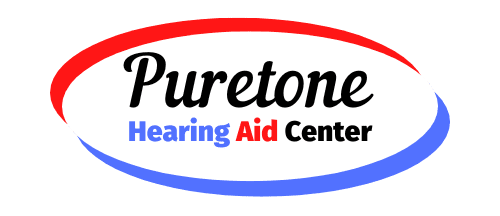Traveling can be an exciting experience, but for individuals with hearing aids, it’s essential to address their unique needs while planning a vacation. Proper planning and preparation not only ensure a smooth trip but also build confidence to fully enjoy the travel experience. In this article, we will provide expert travel tips tailored for hearing aid users, helping them navigate their vacations with ease and confidence.
Choosing the Right Accommodations:
The first step in ensuring a comfortable trip is to research and select hearing-friendly hotels or resorts. Look for accommodations that cater to individuals with hearing loss, equipped with visual alerts and assistive listening devices. You can identify these features by checking the hotel’s website or reaching out to their customer service. Additionally, it’s crucial to request accessible rooms with the necessary accommodations in advance so that they are available upon arrival. Don’t forget to communicate any special needs to the hotel staff to ensure a seamless and comfortable stay.
Packing Essentials for Hearing Aid Users:
When packing for a trip, hearing aid users should consider including some essential items. First and foremost, carrying extra hearing aid batteries or a charger is vital to avoid any inconvenience if the batteries run out during the trip. It’s also essential to bring along cleaning tools and supplies, as proper maintenance is crucial for optimal hearing aid performance. Additionally, investing in waterproof or sweat-resistant covers for hearing aids can provide extra protection during water-based activities or hot weather. Lastly, portable assistive listening devices or personal amplifiers can enhance hearing capabilities in challenging listening environments, allowing you to fully engage with your surroundings.
Communication Tips for Traveling:
Effective communication plays a pivotal role in ensuring a smooth travel experience. Inform your travel companions about your hearing loss and the communication strategies that work best for you. This will help them understand and accommodate your needs. Additionally, consider utilizing communication apps or devices designed to improve understanding in noisy environments. These technologies often provide captions or amplification, making it easier to follow conversations or announcements. It’s also a good idea to carry a written communication card or pen and paper as a backup when faced with communication challenges.
Navigating Transportation:
Getting around during your trip can present its own unique set of challenges. To ease this process, it’s beneficial to arrange for airport or train station assistance in advance. Notifying airline or transportation staff about your hearing needs can ensure they provide the necessary accommodations and support. Utilizing visual alerts or apps that provide boarding announcements can also help you stay informed about your travel schedule and any updates or changes.
Exploring Tourist Attractions and Activities:
Researching the accessibility features and accommodations at popular tourist spots before your trip is key. Many attractions now offer hearing-friendly features such as looping systems or guided tours with assistive listening devices. Booking these guided tours or utilizing these features can greatly enhance your experience. Additionally, smartphone apps that offer real-time captioning or audio descriptions can provide valuable support when visiting museums, landmarks, or attending performances.
Safety Considerations:
When participating in water activities or extreme sports, it’s essential to ensure that your hearing aids are secure from any potential damage. Investing in a waterproof storage case can provide peace of mind while engaging in outdoor adventures. Additionally, be cautious of background noise and potential hazards in unfamiliar environments. Being aware of your surroundings is critical for your safety and enjoyment.
Finding Support and Resources:
It’s always helpful to know you have support and resources available during your trip. Before departure, locate audiology clinics or hearing care professionals at your travel destination. They can provide assistance if any issues arise with your hearing aids. Furthermore, joining online communities or forums for hearing aid users allows you to seek valuable advice and recommendations from fellow travelers. Don’t forget to explore assistive technology apps or devices that can enhance your hearing experience in various situations.
By implementing these expert travel tips, hearing aid users can embark on their vacations with confidence and enjoy every moment to the fullest. Remember to choose accommodations that cater to your needs, pack essential items for your hearing aids, communicate effectively with your travel companions, and navigate transportation and tourist attractions wisely. Prioritize your safety, and take advantage of the support and resources available to you wherever you go. Embrace your travel experiences, create lasting memories, and let your hearing aids enhance your journey with confidence.



